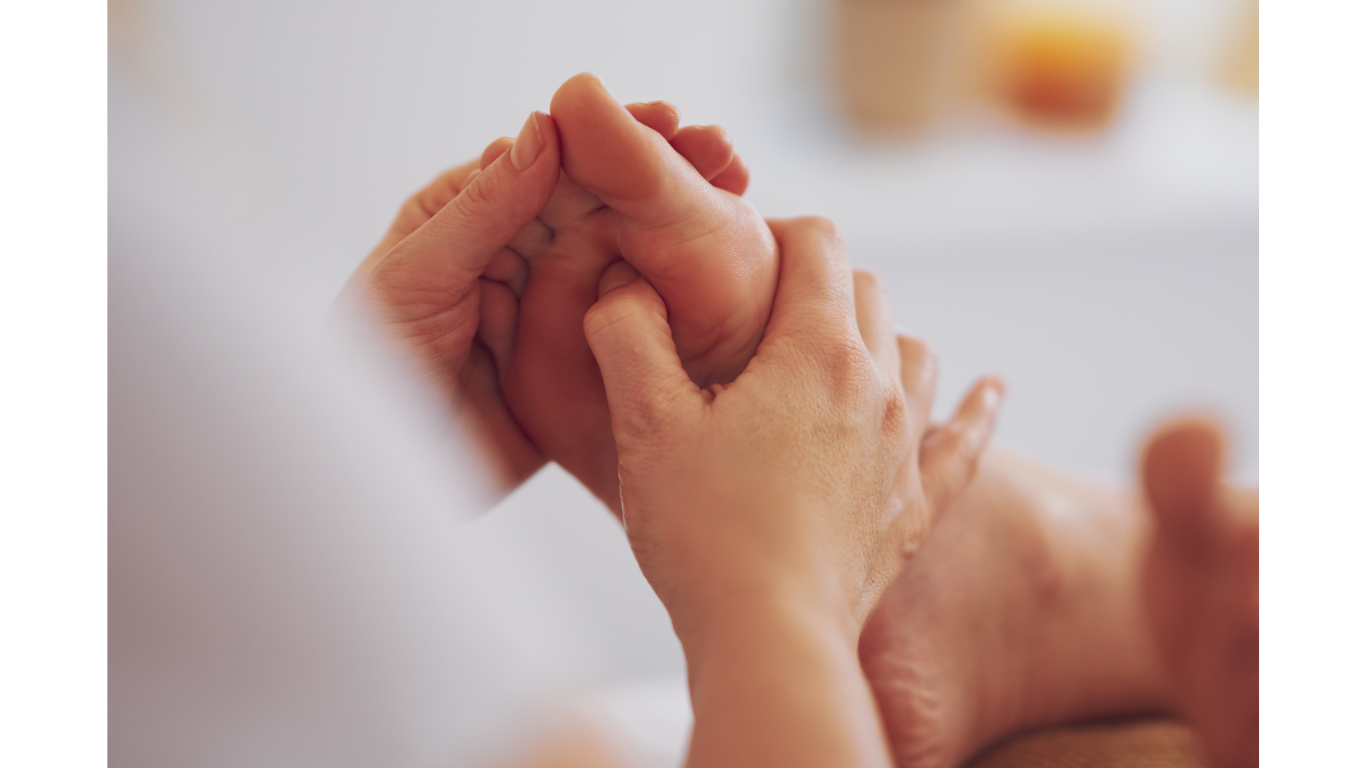How Reflexology assists with foot issues and general health
A list of ways reflexology can improve issues with feet but also aid in many common health issues.

The Healing Touch: Exploring the Benefits of Reflexology
In a fast-paced world filled with stress and tension, finding holistic approaches to alleviate chronic pain and promote overall well-being has become increasingly essential. Reflexology, an ancient practice rooted in the belief that various points on the hands and feet correspond to specific organs and systems within the body, offers a natural and non-invasive way to restore balance and harmony. Let's delve into how reflexology can effectively address a myriad of health issues, from back pain to migraine headaches.
1. Back and Chronic Pain:
Reflexology targets reflex points on the feet and hands that correspond to different parts of the body, including the spine and musculoskeletal system. By applying pressure to these reflex points, reflexologists aim to alleviate tension, improve circulation, and stimulate the body's natural healing response. Regular sessions of reflexology can help reduce back pain, muscle stiffness, and chronic discomfort, promoting greater flexibility and mobility.
2. Arthritis:
Arthritis, characterised by inflammation and stiffness of the joints, can significantly impact mobility and quality of life. Reflexology offers relief by targeting reflex points associated with the affected joints and promoting relaxation of surrounding muscles and tissues. By improving circulation and reducing inflammation, reflexology can help alleviate pain and stiffness associated with arthritis, enhancing joint function and promoting a greater sense of comfort and well-being.
3. Plantar Fasciitis:
Plantar fasciitis, a common cause of heel pain, results from inflammation of the plantar fascia—a thick band of tissue that runs along the bottom of the foot. Reflexology can provide relief by focusing on reflex points corresponding to the feet and heel area. By applying gentle pressure and massage techniques to these points, reflexologists can help alleviate tension, reduce inflammation, and improve flexibility in the plantar fascia, relieving pain and discomfort associated with plantar fasciitis.
4. High Blood Pressure:
Reflexology has been shown to have a calming effect on the body's nervous system, helping to reduce stress, anxiety, and tension—all of which contribute to elevated blood pressure levels. By targeting reflex points associated with the cardiovascular system, reflexologists can help promote relaxation, improve circulation, and support overall cardiovascular health. Regular reflexology sessions can complement lifestyle changes and medication in managing high blood pressure, promoting a more balanced and healthy blood pressure profile.
5. Sleep Disorders:
Sleep disorders, including insomnia and restless leg syndrome, can disrupt sleep patterns and impact overall health and well-being. Reflexology offers a natural and drug-free approach to improving sleep quality and promoting relaxation. By stimulating reflex points associated with the nervous system and endocrine glands, reflexologists can help induce a state of deep relaxation, reduce anxiety, and enhance the body's natural sleep-wake cycle. Regular reflexology sessions can help regulate sleep patterns and promote restful, rejuvenating sleep.
6. Fibromyalgia:
Fibromyalgia is a chronic condition characterized by widespread musculoskeletal pain, fatigue, and tender points throughout the body. Reflexology can provide relief by targeting reflex points associated with the nervous system, muscles, and pain perception pathways. By stimulating these reflex points, reflexologists can help alleviate muscle tension, reduce pain sensitivity, and promote relaxation, offering much-needed relief for individuals living with fibromyalgia.
7. Gout:
Gout is a form of arthritis characterised by sudden and severe attacks of joint pain, often affecting the big toe. Reflexology can help manage gout symptoms by focusing on reflex points associated with the kidneys, which play a key role in filtering uric acid—the underlying cause of gout. By promoting kidney function, improving circulation, and reducing inflammation, reflexology can help alleviate pain and discomfort associated with gout attacks, supporting overall joint health and mobility.
8. Migraine:
Migraine headaches can be debilitating, affecting individuals' ability to function and enjoy daily activities. Reflexology offers relief by targeting reflex points associated with the head, neck, and nervous system. By applying gentle pressure to these reflex points, reflexologists can help alleviate tension, reduce headache frequency and intensity, and promote relaxation, offering relief for individuals suffering from migraines.
In conclusion, reflexology offers a holistic approach to health and wellness, addressing a wide range of physical and emotional concerns, from chronic pain to sleep disorders. By stimulating reflex points on the hands and feet, reflexologists can help restore balance and harmony within the body, promoting relaxation, alleviating discomfort, and supporting overall well-being. Whether you're seeking relief from foot pain, back pain, arthritis, or migraines or want to increase foot flexibility and promote better circulation reflexology offers a gentle and effective path to healing, helping you to thrive and live life to the fullest.
